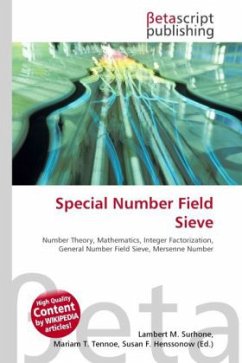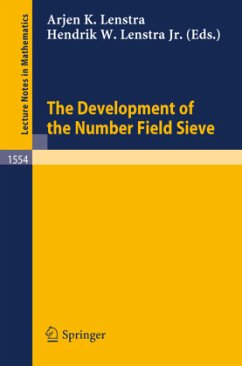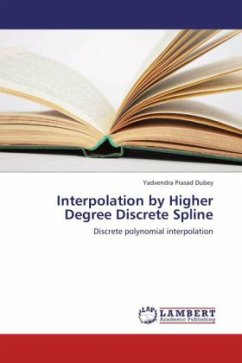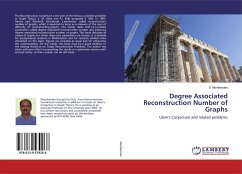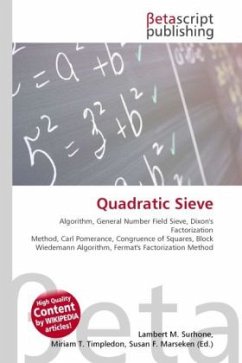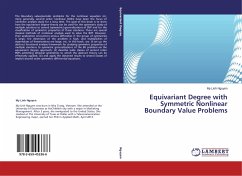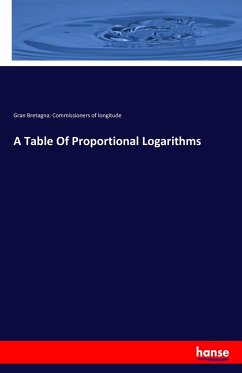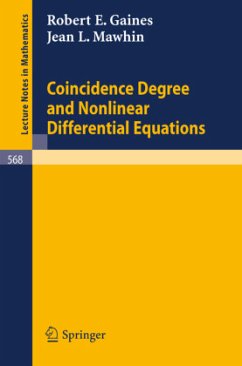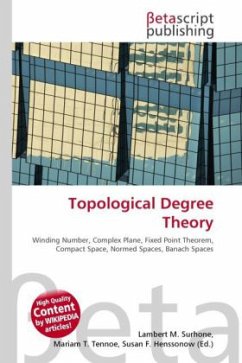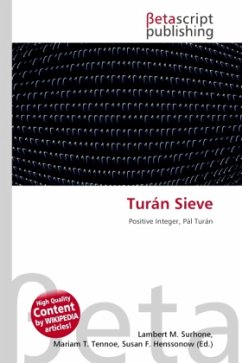
Discrete Logarithms and Degree Six Number Field Sieve
A practical approach
Versandkostenfrei!
Versandfertig in 6-10 Tagen
32,99 €
inkl. MwSt.

PAYBACK Punkte
16 °P sammeln!
The asymptotically fastest algorithm to solve theDiscrete Logarithm Problem in finite fields is theNumber Field Sieve (NFS). This work presents asummary of the Number Field Sieve and its practicalexperimental implementation to solve the discretelogarithm problem in finite fields of degree six.This particular problem arises e.g. when one tries tosolve DLP in XTR cryptosystem. As shown, the degreesix instance of the DLP is practically more difficultto solve with NFS as a classical DLP.Also contained in this book are some specific remarksto the related topic of the polynomial selection forthe NFS...
The asymptotically fastest algorithm to solve the
Discrete Logarithm Problem in finite fields is the
Number Field Sieve (NFS). This work presents a
summary of the Number Field Sieve and its practical
experimental implementation to solve the discrete
logarithm problem in finite fields of degree six.
This particular problem arises e.g. when one tries to
solve DLP in XTR cryptosystem. As shown, the degree
six instance of the DLP is practically more difficult
to solve with NFS as a classical DLP.
Also contained in this book are some specific remarks
to the related topic of the polynomial selection for
the NFS. A three dimensional adaptation of the line
sieving algorithm is described as well as the
parametrization choices for the sieve region,
contribution of small primes and exclusion of higher
degree ideals.
Although the results of this work are related to the
specific instance of NFS, they can influence also the
mainstream NFS applications (the factoring of
integers or the classical DLP).
Discrete Logarithm Problem in finite fields is the
Number Field Sieve (NFS). This work presents a
summary of the Number Field Sieve and its practical
experimental implementation to solve the discrete
logarithm problem in finite fields of degree six.
This particular problem arises e.g. when one tries to
solve DLP in XTR cryptosystem. As shown, the degree
six instance of the DLP is practically more difficult
to solve with NFS as a classical DLP.
Also contained in this book are some specific remarks
to the related topic of the polynomial selection for
the NFS. A three dimensional adaptation of the line
sieving algorithm is described as well as the
parametrization choices for the sieve region,
contribution of small primes and exclusion of higher
degree ideals.
Although the results of this work are related to the
specific instance of NFS, they can influence also the
mainstream NFS applications (the factoring of
integers or the classical DLP).



